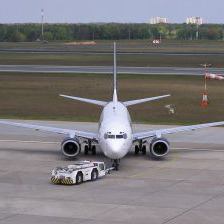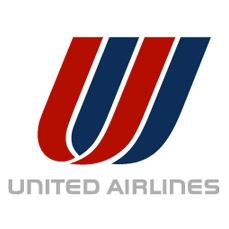 Following the United/Northwest merger announcement, Continental was able to reclaim its “golden share” from Northwest for $100 yesterday, which will enable the airline to enter into its own merger talks.
Following the United/Northwest merger announcement, Continental was able to reclaim its “golden share” from Northwest for $100 yesterday, which will enable the airline to enter into its own merger talks.
A golden share is a nominal share that gives veto power over a major corporate action (ie- a merger).
According to Business Travel News, since the late ’90s Northwest has held this “preferred stock” that prevented Continental from going into a merger without prior consent from Northwest.
A provision in the agreement said that Continental could buy back that share for $100 if Northwest entered into its own deal.
Now the travel industry is waiting to see just how long before the announcement of a deal between Continental and United. The Wall Street Journal reports that United’s chief executive, Glenn Tilton, reiterated his support for industry consolidation in a statement, saying:
“The industry has changed dramatically–both globally and domestically–and the old paradigms no longer apply; the current fuel and economic environment are only accelerating the need for a different approach. Consolidation is but one of the changes necessary to achieve sustained profitability, and we have been fully supportive.”
Continental was only slightly more conservative in its statements. CEO Larry Kellner and president Jeff Smisek released memo that said, “As we’ve said repeatedly for more than a year and a half, our preference has been to remain independent as long as the competitive landscape remained the same. However, the landscape is changing. We will review our strategic alternatives and make sure we remain a strong long-term competitor.”


The Continental-United merger would create a mega-airline that’s even larger than the Delta-Northwest combo. But as we’ve seen with the lengthy US Airways/America West merger, and are expecting to see with the Delta/Northwest deal, airline consolidation is never easy. Layers of bureaucratic red tape, regulatory approval processes, and employee unions may well hold up the process.
Although less competition usually translates into higher fares and more crowded flights, some analysts predict some good news with mega-carriers. Airline consultant Michael Boyd of the Boyd Group, Inc., told the Associated Press that a combined carrier might give small-city passengers access to more airlines.
Continental and United have some complementary routes: The Journal points out that Continental is strong in Newark, Houston and Latin America while United has a hefty presence in the Chicago, Denver, Los Angeles and Asia-Pacific markets. Continental flies to Europe from the East Coast; United more frequently flies to Europe from the West.
On a related note, Continental announced Thursday that it will be cutting 14 aircraft from its fleet due to fuel inefficiency. According to Forbes, Continental said its fuel costs increased 53.2 percent, by $364 million, in the first quarter of 2008, compared with the first quarter of last year. It reported a net loss of $80 million, compared with a year-earlier profit of $22 million.
By Managing Editor Sarika Chawla for PeterGreenberg.com
Related links: Business Travel News, Wall Street Journal, Houston Chronicle, Forbes
Peter Greenberg Links: Delta Acquires Northwest: Now What?, Impending Drama: Merger Mania, Frequent-Flier Follies: Why Airlines Don’t Make Good Banks, Airline Mergers and Crash-Landing Investigations
Check out more articles on recent top news stories in travel in Peter’s Travel Detective Blog.












